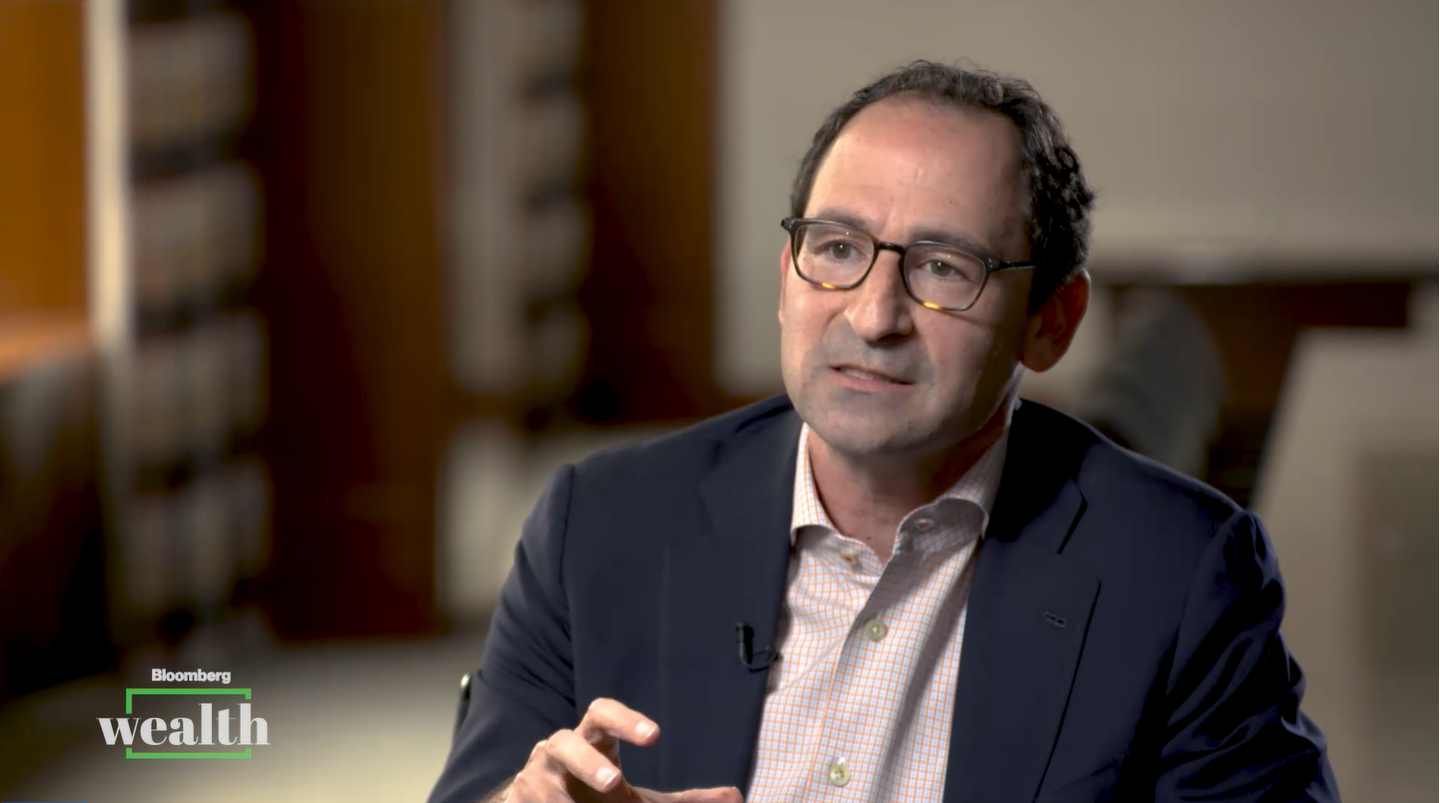By Peter Eichenbaum
June 10, 2021, 9:01 PM PDT
Bloomberg Wealth
Blackstone Group Inc. President Jon Gray has some advice for investors looking to make sense of the wild real estate market in the U.S: Don’t fear a bust anytime soon.
Home prices have surged the most since 2005, cheap mortgages are encouraging buyers toward new homes, and building costs are spiking because of rising prices for raw materials. At the same time, a worker shortage means new construction is failing to keep up with soaring demand. And in commercial real estate, the wider acceptance of remote work during the Covid-19 pandemic is threatening to decimate office properties.
In spite of all that, now’s a pretty good time for the market, according to Gray, who has been at the center of the biggest booms and busts in the industry over the past three decades.
The market isn’t showing the typical warning signs — too much leverage, too much capital, too much building, Gray said in the inaugural episode of “Bloomberg Wealth with David Rubenstein.” There will be a “rediscovery” of cities such as New York and San Francisco, fueled by immigrants, creativity, entrepreneurship and technology, he said.
The billionaire also spoke about where he’d put $100,000 today, what to avoid pouring money into, the best way to invest in real estate and how President Joe Biden’s tax policies could affect property owners.
Gray’s journey at the New York-based firm began in 1992, working on M&A pitch books and ordering dinner for associates at the fledgling private equity shop. About a year later, the real estate market collapsed. Sensing an opportunity, Blackstone founders Steve Schwarzman and Pete Petersen formed a real estate business and tapped Gray, a recent University of Pennsylvania graduate who had once considered a career in journalism, to help get it off the ground.
By 2005, Gray was running the unit and spent the next 13 years building it into a behemoth with about $115 billion of assets. In 2007, he took the Hilton hotel group private, and then had to restructure the deal during the financial crisis, ultimately more than tripling the investment when Blackstone exited 11 years later.
“Be a high-conviction investor,” Gray, 51, told Rubenstein, the co-founder of Carlyle Group.
The interview has been edited and condensed.
The economy has been pretty good, but it probably will head down at some point, so if I want to invest in real estate, is now a good time?
It’s still a pretty good time for real estate for a couple of reasons. The warning signs are twofold — too much leverage, too much capital — and we don’t really have that in the real estate system today. The other is too many cranes and too much building, and we’re actually below historic levels in terms of new supply.
The other thing I’d point out is that the S&P 500 delivered something like four-times the return of public REITs since the beginning of 2020, before Covid. So real estate is lagging coming out of the recovery because obviously people have been concerned about the physical world. As the economy reopens, people go back into spaces, real estate is gonna see a little bit of a bounce. I think the risk is if interest rates move a lot.
One positive thing about real estate also is inflation drives up the replacement cost of buildings. And that gives you a little bit of a cushion on existing real estate.
Is residential less risky or more risky than commercial real estate?
If you talk about for-sale, single-family housing, there’s probably more risk, in the sense that you’re building something and you’re selling it, and it’s a function of the market. If you’re talking about rental housing — an apartment complex — that tends to be less risky because it’s less cyclical. People don’t give up their apartments. There’s some volatility but nothing like, say, office buildings or hotels.
And then commercial real estate involves office buildings; warehouses, which has been the biggest theme for us over the last 10 years; hotels; shopping centers; senior living facilities. And all of them have different risk-returns, depending on geography.
New York City has seen a lot of people leave during Covid. Do you expect that people will come back, work five days a week, and use all the office space in New York or similar cities that they did before?
There is sort of a recency bias — that because we’ve been home, we assume that’s the way it’ll be. When we think about our company, we know we’re better together. We’re better at being creative, we’re better solving problems, we’re better training our young people. It’s really an apprenticeship business, learning how to invest. We have a lot of smart, talented people who are connected by culture. Being together matters.
Yes, some companies will conclude they don’t need quite as much space, so that’ll create some additional vacancy. People will be concerned about owning office buildings, and that may create an opportunity. There will be some headwinds for a number of years and then, over time, things will recover.
I would point out, though, outside the U.S. — for instance, in China — buildings are back to full capacity, and in Europe people don’t have as much space in their home lives. So not all geographies are the same. And even here, I think there’ll be a bias toward going back to the office, even though it won’t be like it was before, in full.
A lot of people have moved to Florida and Texas, maybe for warm weather, maybe because those states don’t have income taxes. Do you think that trend will continue? And is that a good place to invest in real estate now?
It’s a bit of both. The weather, the lower cost of living, lower taxes, concerns about quality of life. Texas is one of the fastest-growing states in the country, even though it’s enormous. I think that will continue, and it was accelerated a bit by the pandemic. On the other hand, New York City, San Francisco, these are amazing places. And when you think about technology and innovation, entrepreneurship, immigrants — there will be a rediscovery of these cities. But, yes, Texas and Florida are well-positioned.
You’ve been buying a lot of rental housing. Is that because you think young adults aren’t as interested in buying their own homes?
Home ownership rates have gone down a bit, but if you look in the last 12 months, during Covid, there’s been a surge in people wanting to own homes. Our investment in rental housing is based on the fact that we just haven’t built a lot of housing since 2008-09. So that has created support for single-family values, but also rental values. And now, as the economy reopens, the shortage in housing will become more acute, so we continue to like it as a sector to invest in.
One of the most favorable parts of the tax code for real estate is the 1031 like-kind exchange. President Biden has proposed changing that. Will that affect real estate very much?
It’ll affect individual investors who’ve owned assets for a long time, will harvest gains and then buy a new piece of real estate. For institutional investors, it’s less of an impact because we’re selling, we’re paying taxes. The way it may impact us is if there’s less selling as a result. The same thing could happen if capital-gains taxes go up. You could see some individual owners of real estate be more reluctant, but I don’t think as much of an impact on the institutional market.
If I have $100,000, where should I put it today?
In real estate. We love what we’re doing in the private REIT space. You can invest in a good basket of public REITs as well. More generally, I think the S&P 500. You’ll do fine over a long period of time. There’s a lot of exposure to fast-growing tech companies in there.
Where should I not invest my money?
You should stay away from buggy-whip businesses. You should stay away from land-line phone companies, and some of the legacy retailers, some legacy media businesses. You want to focus on the future. On real estate, in particular, if I had one piece of advice — go where the creative and technology types are, because those are the markets where there will be the most economic activity. So the West Coast; Austin, Texas; Cambridge, Massachusetts; Shenzhen; London; Amsterdam; Tel Aviv; Bangalore. Tech is driving so much of the growth in this global economy.
Do people come up to you at cocktail parties and ask you for investment advice?
They often ask me residential home prices, which is not my area of expertise. What I tend to tell people is to focus on the longer term. What you want to say is, “Is this fundamentally a good business? Is it in a good sector? Is this a good piece of real estate, where supply is limited, demand is favorable?” And if you own something good, hold it for a long period of time. Find those right neighborhoods to invest in, deploy your capital and then be patient.
What did you do in the beginning at Blackstone?
The first deal I worked on was a shopping center in Chesapeake, Virginia. It was a $6 million transaction. We borrowed $4 million, so it was a $2 million equity check. And you would have thought I was buying the island of Manhattan. I was down there for three weeks. I met every tenant, I was counting the car traffic, I was learning the business. And it was an amazing experience. We were this tiny, little business and I was learning it firsthand.
What was your thinking about buying Hilton? Was it a real estate play, or a corporate play?
It was a bit of both. We did the transaction with our real estate private equity funds, and our corporate private equity fund, because Hilton owned great real estate, like the Waldorf Astoria, the Hilton Hawaiian Village. But it also had this amazing management franchise business.
And we also believed that the multiple was reasonable. We were paying 13 or 14 times cashflow for what we thought was a great business. Our mistake, of course, was that our timing was terrible. We closed on the transaction at the end of 2007. In less than a year, of course, Lehman would collapse, the global economy would be melting down, global travel would decline dramatically.
We still saw tremendous opportunity to grow the company around the world, and so we invested $800 million more at the bottom, we stuck with the company, it started growing. There was a cyclical recovery. We ultimately took it public, we broke it into three different companies: a management franchise, time share, and real estate business, and we made $14 billion for our investors. So it ended well.
So when you were doing these big deals, did your friends from college call you up and say, “I thought you were gonna be a journalist, now you’re a capitalist?”
When I met my wife in romantic poetry class, I showed up wearing a suit and tie. Everyone else was in birkenstocks. So it was clear I’d made a decision which path I was on.
What’s the best investment advice you ever received?
To be a high-conviction investor — that when you dabble, and just put a bunch of money here on things you don’t know or understand, it tends to work out badly. But when you see something, single-family housing, global logistics, the movement of everything online, and you lean into that, that’s when you have the best outcomes.

 Facebook
Facebook
 X
X
 Pinterest
Pinterest
 Copy Link
Copy Link


